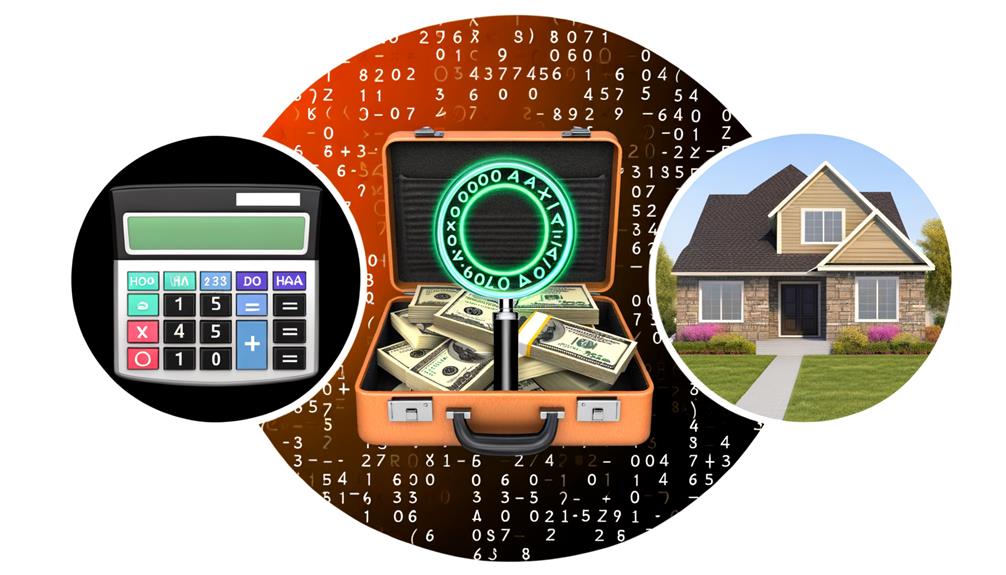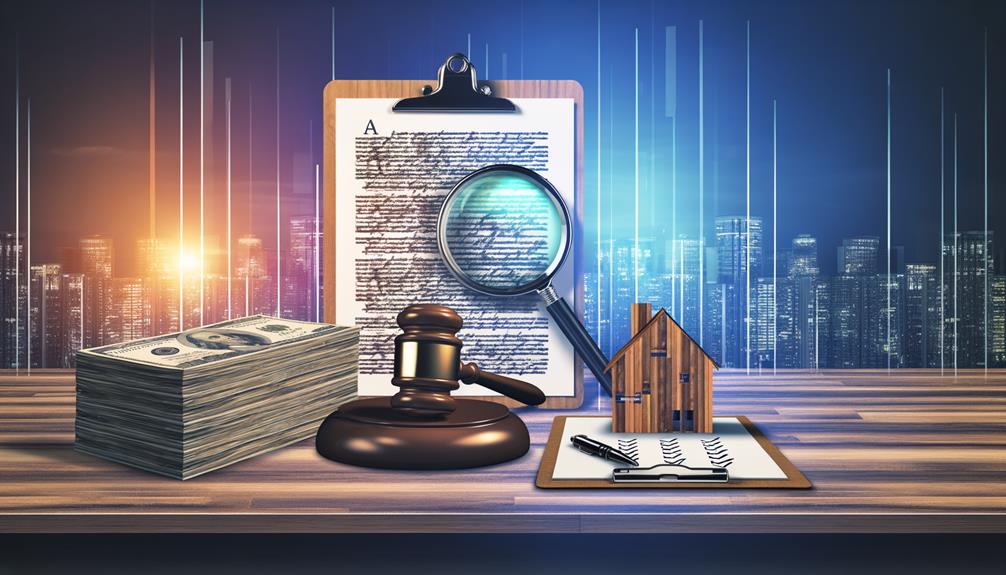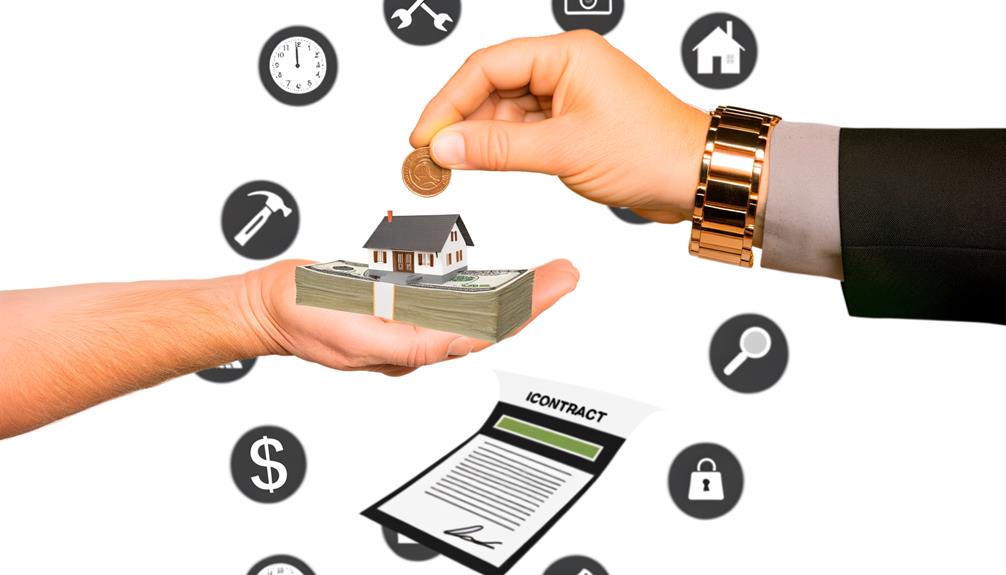The decision to purchase a house outright, bypassing the need for a mortgage, raises a multitude of considerations, one of the most pressing being the array of costs incurred in the process. These are not limited to the sticker price of the property; indeed, the financial implications extend to a wide range of expenses that may not be immediately evident.
From closing costs such as title insurance and home inspection fees, to ongoing expenses like property taxes and utilities, the cash buyer must navigate a complex landscape of financial obligations. While this method of purchase does offer certain advantages, the savvy buyer will also want to explore the potential downsides, including the impact on liquidity and the absence of mortgage-related tax deductions.
The following discussion aims to shed light on these aspects, providing a comprehensive overview of the costs associated with buying a house for cash.
Key Takeaways
- Property taxes are a mandatory expense for cash buyers and are based on the value of the property.
- Homeowners insurance is necessary to protect the property and provide liability coverage.
- Without homeowners insurance, property damage can result in out-of-pocket expenses and potential lawsuits.
- Other costs involved in buying a house for cash include home maintenance costs, HOA fees, utility costs, legal and administrative costs, and evaluating closing costs.
Understanding Property Taxes
When considering the costs of buying a house for cash, it is crucial to understand that property taxes remain a mandatory expense even after the mortgage has been fully paid off. Property taxes are levied by local governments and are typically based on the value of a property. They are a considerable expense that cash buyers cannot skip, regardless of the cash purchase strategy employed.
To precisely gauge the property tax for a potential cash purchase, resources such as city and county websites can be instrumental. Real estate agents can also offer valuable insights and provide access to the current owner's tax bill. This information enables an accurate estimation of the cost of your homeowners' property tax, allowing you to factor it into the purchase price.
However, it is noteworthy to remain vigilant about potential tax rate hikes. These could significantly impact the projected cost of homeownership, creating a financial strain where there was none. Therefore, it is advisable to check a home's listing on platforms like realtor.com® for an estimate of future property tax bills. This proactive step is a crucial part of a well-informed cash purchase decision.
Importance of Homeowners Insurance
The importance of homeowners insurance in the context of buying a house outright is multi-faceted.
Firstly, the understanding of homeowners insurance involves recognizing it as a safeguard for the property, acting as a financial security net in case of unforeseen circumstances.
Furthermore, the benefits of this coverage extend to potential liability situations, while the risks of forgoing such protection can lead to substantial financial loss.
Understanding Homeowners Insurance
Navigating the complex landscape of homeowners insurance is paramount, as it serves as a vital financial shield, safeguarding your home and belongings from unpredicted adversities. This is of particular importance for home buyers considering a cash offer when purchasing a House With Cash. Your estate attorney will stress the significance of homeowners insurance, regardless of your home value.
- Homeowners insurance protects against potential catastrophes, ensuring you're financially covered.
- Your insurance premium is influenced by factors such as the size of your home and location.
- It offers liability coverage, providing protection against legal issues.
- Homeowners insurance can cover the cost of living elsewhere during home repairs.
- It is a critical requirement by mortgage lenders, ensuring their investment is protected.
Benefits of Insurance Coverage
Experiencing the shield of homeowners insurance against potential financial ruin proves invaluable, particularly when one considers the range of coverage it offers. This coverage includes protection against unexpected disasters such as fire and theft, as well as liability coverage in the event of legal claims or medical expenses.
Indeed, this insurance to protect the property serves as a robust layer of financial security for home buyers closing costs and more. An owners title insurance policy, facilitated by a title company, can further safeguard against title-related issues.
Additional costs may arise from a Homeowners association, but insurance can offer some buffer. Altogether, these advantages underscore the profound peace of mind that insurance coverage provides. It is a non-negotiable element in responsible homeownership.
Risks Without Insurance Protection
While the benefits of insurance coverage provide a formidable financial shield, not having such protection exposes homeowners to potentially severe risks, emphasizing the critical role of homeowners insurance in the home buying process. This is especially crucial when considering the costs when paying cash, as it forms a part of home buyers closing costs.
- Without homeowners insurance, property damage could lead to significant out-of-pocket expenses.
- Liability coverage is crucial to protect against potential lawsuits.
- Mortgage insurance is not applicable when paying cash, highlighting the importance of adequate homeowners insurance.
- Hiring an attorney to navigate these risks without insurance protection can add to the closing costs for cash.
Home Maintenance Costs
Despite the allure of purchasing a house with cash, potential homeowners must not overlook the ongoing costs associated with home maintenance. It is critical to factor in these expenses when considering the overall price of the purchase.
Home buyers closing costs, for instance, can quickly add up. These can include fees for Home Inspectors, who ensure that the house is structurally sound and safe. Home inspections are crucial not only when you buy a home but also when you plan to sell your home. They can highlight potential issues that might affect the selling price or the desirability of the property.
Another significant cost is property taxes, which continue to accrue annually regardless of how the house was purchased. Taxes can vary based on location and property value, making them a critical consideration for any potential homeowner.
Additionally, many properties come with annual HOA (Homeowner Association) fees. These fees cover communal services and maintenance within a housing community.
Decoding Homeowners Association Fees

Homeowners Association (HOA) fees constitute a significant aspect of the costs associated with owning a property. These mandatory charges, determined by factors such as the size of the home and the amenities provided within the community, are designated for the upkeep of shared spaces and provision of certain services.
It's crucial for potential buyers to comprehensively understand these fees, their inclusions, and the potential for increases over time to accurately assess the financial implications of their prospective property purchase.
Understanding HOA Fees
Navigating through the realm of Homeowners Association Fees, commonly known as HOA fees, requires a keen understanding of what these costs entail and how they are utilized within a residential community. These fees are a crucial part of the 86 closing costs that home buyers must pay.
HOA fees cover the maintenance of common areas and amenities, contributing to the appeal of the community. These costs can vary based on the range and quality of services provided.
Typically, home buyers pay these fees monthly or annually. In some cases, HOA fees include utilities, landscaping, and exterior maintenance, reducing buyers' closing costs.
It's vital for buyers to review the HOA's financials to understand how their fees are being used.
Understanding these fees can help buyers make an informed decision when purchasing a home.
HOA Fee Inclusions
Delving into the specifics of HOA fee inclusions reveals an extensive scope that may cover the maintenance of common areas, landscaping, snow removal, community security, and even water and sewer services, making it imperative for potential home buyers to understand these details. These costs associated with homeownership, often overlooked by buyers, can significantly impact the closing costs when paying with cash.
| Potential HOA Fee Inclusions | Impact on Buyer Closing Cost | Role of the Real Estate Agent |
|---|---|---|
| Maintenance of Common Areas | Can increase costs on a cash purchase | Can provide clarity on related costs |
| Landscaping and Snow Removal | Additional costs for the seller | Guides through escrow fees |
| Community Security, Water and Sewer Services | Not directly included in closing costs | Assists in understanding these additional costs |
Ensuring a detailed study of these elements can help navigate the often complex process of buying a house.
Utility Costs Breakdown
In the realm of home ownership, a comprehensive understanding of utility costs, encompassing electric, gas, water, sewer, and trash services, is indispensable for accurate financial planning. Cash buyers, free from a mortgage loan amount, are no less exempt from these recurring expenses in their real estate purchase.
The actual cost of utilities varies greatly based on factors such as property size, location, and usage habits, but a general rule of thumb is to expect to pay around 1% of the property's value annually.
Here's a breakdown to help you anticipate these costs:
- *Electricity*: This is usually the highest utility bill, with the national average monthly cost for a single-family home being around $115.
- *Gas*: Unless your home is completely electric, you'll need to factor in a monthly gas bill. The U.S. average is approximately $60 per month.
- *Water and Sewer*: This combined bill varies widely, but expect to pay around $70 a month.
- *Trash and Recycling*: These services are often combined with the water and sewer bill, but independently can cost around $20 a month.
- *Internet and Cable*: These are optional, but for many a necessity, averaging around $100 a month.
Understanding these costs will make your transition into home ownership smoother.
Legal and Administrative Costs

When purchasing a house for cash, it's essential to consider the legal and administrative costs involved, which encompass attorney fees, title search fees, and policies of title insurance. These costs are crucial elements in the transfer of property ownership and can vary based on several factors, including property location and type.
Attorney fees are typically charged for the legal guidance provided during the transaction. The title search, a vital due diligence step, ensures that the title is clear of any liens or encumbrances. The costs for this search, along with the buyer's policy of title insurance, serve to protect the new owner's interest.
Moreover, consider the closing fees, which include recording fees for the deed, processing fees, and courier fees. These are necessary to finalize the transaction and secure the transfer of the title. In certain locales, transfer taxes may also apply, increasing the financial burden.
Administrative costs, such as escrow fees, and potential brokerage fees, are also part of the equation. Furthermore, fixed costs like the owner's policy of title insurance and hiring an inspector are essential considerations. Understanding these costs allows for a more informed, confident purchase.
Evaluating Closing Costs
Beyond understanding the legal and administrative costs, it is equally vital to thoroughly evaluate closing costs associated with a cash purchase of a house to ensure a financially sound investment. To understand how much are closing costs, one must consider several factors.
- Settlement charges: These include fees paid to the escrow agent who facilitates the transaction.
- Title insurance fee: This fee is paid to insure against potential title disputes.
- Appraisal fee: This is calculated based on the value of the property to ensure that the price you're paying is reasonable.
- Property taxes: These are usually prorated and paid at closing.
- Recording Fee: Paid to the county or city for recording the new deed.
While paying in cash eliminates the need for a mortgage, it does not absolve the buyer from these costs. Unlike mortgage payments, which can be calculated based on an interest rate, these costs are generally fixed and necessary for legal transfer of ownership. Evaluating these costs accurately allows for an informed decision, ensuring your investment is a sensible one.
Frequently Asked Questions
How Much Less Should You Offer on a House When Paying Cash?
The discount negotiation for cash buyers depends on market value, purchase power, and investment strategy. Cash reserves allow for negotiation tactics taking advantage of cash buyers' benefits over financing options, potentially securing a lower price.
Is It Ever a Good Idea to Pay Cash for a House?
Paying cash for a house, like a double-edged sword, presents both pros and cons. Cash advantages include no mortgage payments and a potentially quicker closing. Meanwhile, drawbacks involve liquidity concerns and lost investment potential.
What Other Expenses Come With Buying a House?
Beyond the purchase price, homeownership entails expenses such as property inspections, home insurance, property taxes, maintenance costs, and utility bills. Also, consider moving expenses, possible renovations, and landscaping costs for a comprehensive budget.
How Do I Calculate Cash Closing?
To calculate cash closing, consider the transaction fees, title insurance, escrow account setup, property appraisals, and legal documentation costs. Also, evaluate tax implications and compare these to potential mortgage costs for a comprehensive financial analysis.
Conclusion
In conclusion, purchasing a house with cash incurs numerous costs, including:
- Property taxes
- Homeowners insurance
- Home maintenance
- Homeowners association fees
- Utilities
- Legal and administrative costs
- Closing costs
Each cost contributes to the overall investment, necessitating a comprehensive understanding to ensure a sound financial decision.
Although buying with cash can offer advantages such as fewer closing costs and a faster process, it may limit liquid cash for other investments and remove potential tax deductions.


